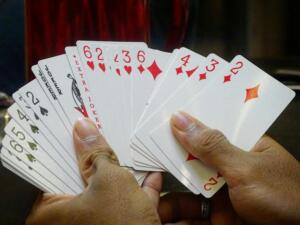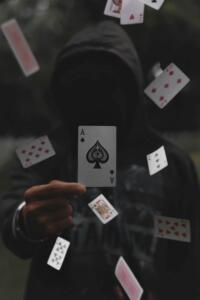Table of Contents
Board games have become a common way for families in New Zealand to spend time together while encouraging social interaction, communication, and cognitive development. Traditional card games passed down through generations as well as modern strategy games together provide a wide variety of options suitable for players of all ages, interests, and skill levels.Understanding what makes each type of game unique can help families choose activities that are interesting, educational, and suitable for their household, ensuring everyone has a chance to participate.

Introduction to Family Fun
Family board games offer structured play that can strengthen connections between household members. In New Zealand, games such as Uno, Catan, and Ticket to Ride have become household staples because they combine clear rules with interactive gameplay. Unlike purely digital entertainment, board games encourage players to develop strategic thinking, communication skills, and collaborative problem-solving. For younger children, games with visual elements like Dobble or Spot It! can also help improve memory and attention span while keeping gameplay fun and light.
Benefits of Playing Games
Playing board games nz regularly has measurable benefits beyond entertainment. Socially, they encourage communication and teach players to negotiate, cooperate, and handle conflicts in a controlled environment. Cognitively, games that involve numbers, patterns, or strategy stimulate logical thinking and planning skills. Emotionally, they provide opportunities for positive reinforcement and learning patience through turn-taking. In a family context, board games can bridge generational gaps, allowing parents and children to participate in shared activities that neither side may experience alone.
Additionally, research indicates that structured play, such as card and board games, can reduce screen time while still offering rewarding cognitive challenges. Families can rotate between games that focus on memory, strategy, or storytelling, ensuring that play remains stimulating and diverse.
Types of Card Game Options
Card games available in New Zealand vary in complexity and style. Traditional options include Snap, Rummy, and Go Fish, which are easy for children and adults alike to understand. More strategic options, such as Magic: The Gathering or Pokémon TCG, are popular among older children and teens, offering deck-building mechanics and competitive play that require planning several turns ahead. Cooperative card games, like The Game or Hanabi, challenge players to work together to achieve shared objectives, encouraging teamwork and communication.
For families seeking casual play, games like Exploding Kittens or Uno provide quick rounds with a mix of luck and basic strategy, making them suitable for younger players or large family gatherings. By contrast, more complex games such as 7 Wonders Duel or Terraforming Mars demand longer attention spans and strategic foresight, appealing to teenagers and adult players who enjoy a challenge. Some card games also include expansions or alternate rules, giving households the option to vary play and keep the experience fresh over time.
This wide selection means families can select games that match their schedule, group size, learning preferences, and preferred level of complexity.

Popular Family Activities
In addition to standard board games nz, many families in New Zealand combine board gaming with themed evenings or challenges. For example, families might rotate game choices each week, pairing a classic card game with a cooperative storytelling game. Outdoor variations, such as card game picnics or board games nz in a backyard setting, are also common and allow for more flexible, relaxed play.
Community-based activities like board game nights at local libraries, cafes, or community centres provide another dimension to gameplay. These events allow families to explore new games they may not own, meet other players, and participate in small tournaments. Some gatherings even include rule explanations or demonstrations, which makes it easier for newcomers to try modern strategy games. Popular board games nz in such settings include Codenames, Carcassonne, and Ticket to Ride, which balance accessibility with well-designed mechanics, making them suitable for mixed-age groups.
Choosing the Right Board Game
Selecting a board game depends on several factors, including age range, number of players, and the desired level of complexity. Families with younger children often benefit from games that focus on colours, matching, or memory, while older children and adults may prefer games with strategic elements or competitive play. The time required for a game should also be considered; some strategy-heavy games can take over an hour per session, which may not suit younger players with shorter attention spans.
Another consideration is game replayability. Games that offer variable setups, multiple strategies, or randomised components, such as Dominion or Pandemic, tend to stay rewarding over multiple sessions. Families should also evaluate whether cooperative or competitive play better suits their dynamics. Cooperative games can encourage teamwork and reduce potential conflicts, while competitive games can develop strategic thinking and healthy competition skills.
When narrowing down options, it helps to think about:
- Game length: Quick rounds (15–30 minutes) work well for younger kids, while longer sessions (60+ minutes) suit older players.
- Number of players: Some games work best with 2–3 players, while others are designed for larger groups.
- Learning curve: Games with simple rules are easier to introduce, while complex rule sets may require more patience and practice.
- Theme or style: Fantasy, historical, or light-hearted party games each create different experiences, so it’s useful to choose one that fits your family’s interests.
By considering these factors, families can build a balanced collection that offers both variety and replay value, ensuring everyone has a game they enjoy.
Finding the Perfect Game
To find a game that suits your family, it can be useful to start with online reviews, local recommendations, and hands-on demonstrations at community events. New Zealand has a growing board game culture, and several stores provide opportunities to test games before purchase. Engaging children in the selection process also ensures they are motivated to participate.
Some families prefer subscription boxes or curated collections that introduce new games periodically, while others rely on a few core favourites. Observing how players interact during test sessions can reveal whether a game is absorbing or frustrating for specific age groups. Tracking game preferences over time helps build a collection that remains interesting and adaptable for family game nights.
FAQs
Where can I buy Board Games NZ and which retailers are best?
Board games nz are widely available through both online and physical retailers in New Zealand. Large chains such as Mighty Ape, Paper Plus, and Warehouse Stationery stock popular family titles, while hobby shops often carry harder-to-find or international options. Some libraries and community centres also offer lending programmes so families can try games before buying.
What are the most popular Board Games NZ enthusiasts are playing?
Many families enjoy strategy and cooperative titles such as Catan, Ticket to Ride, Pandemic, and Carcassonne, which combine clear rules with strong replay value. For casual play, lighter games like Uno and Dobble remain favourites across age groups. Collectible card games, including Pokémon TCG and Magic: The Gathering, also maintain strong communities among teens and adults.
How do I find and join Board Games NZ events or communities?
Board game meet-ups are often hosted at community centres, libraries, cafes, and dedicated hobby shops throughout the country. Larger cities like Auckland, Wellington, and Christchurch run regular events that welcome both beginners and experienced players. Social media groups and platforms like Meetup or Eventbrite list upcoming board game nights, tournaments, and workshops.



